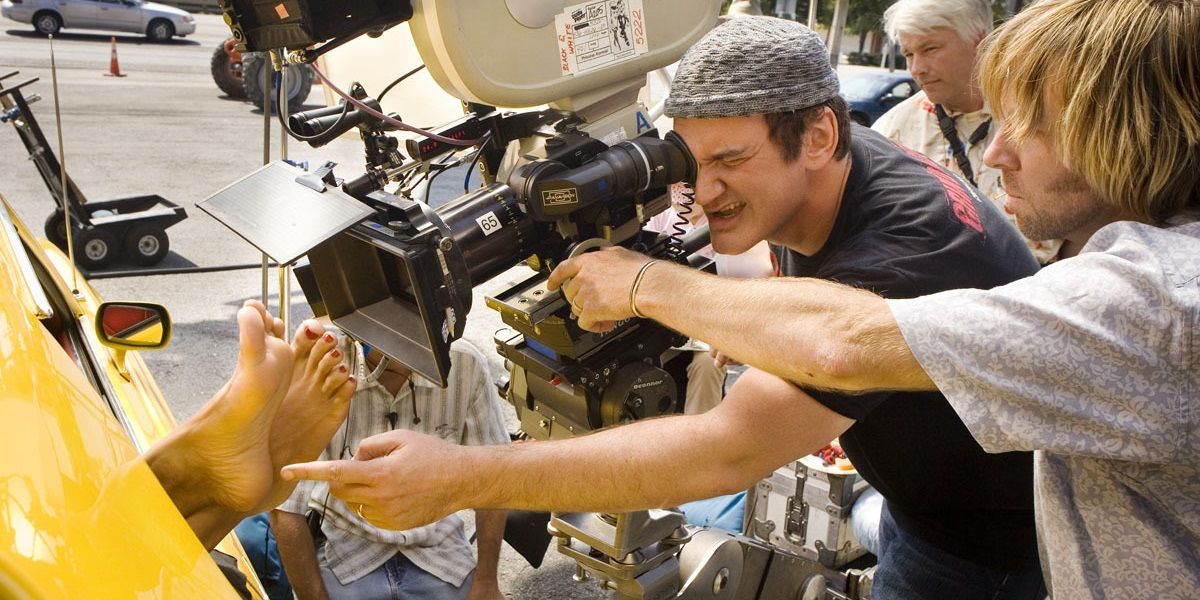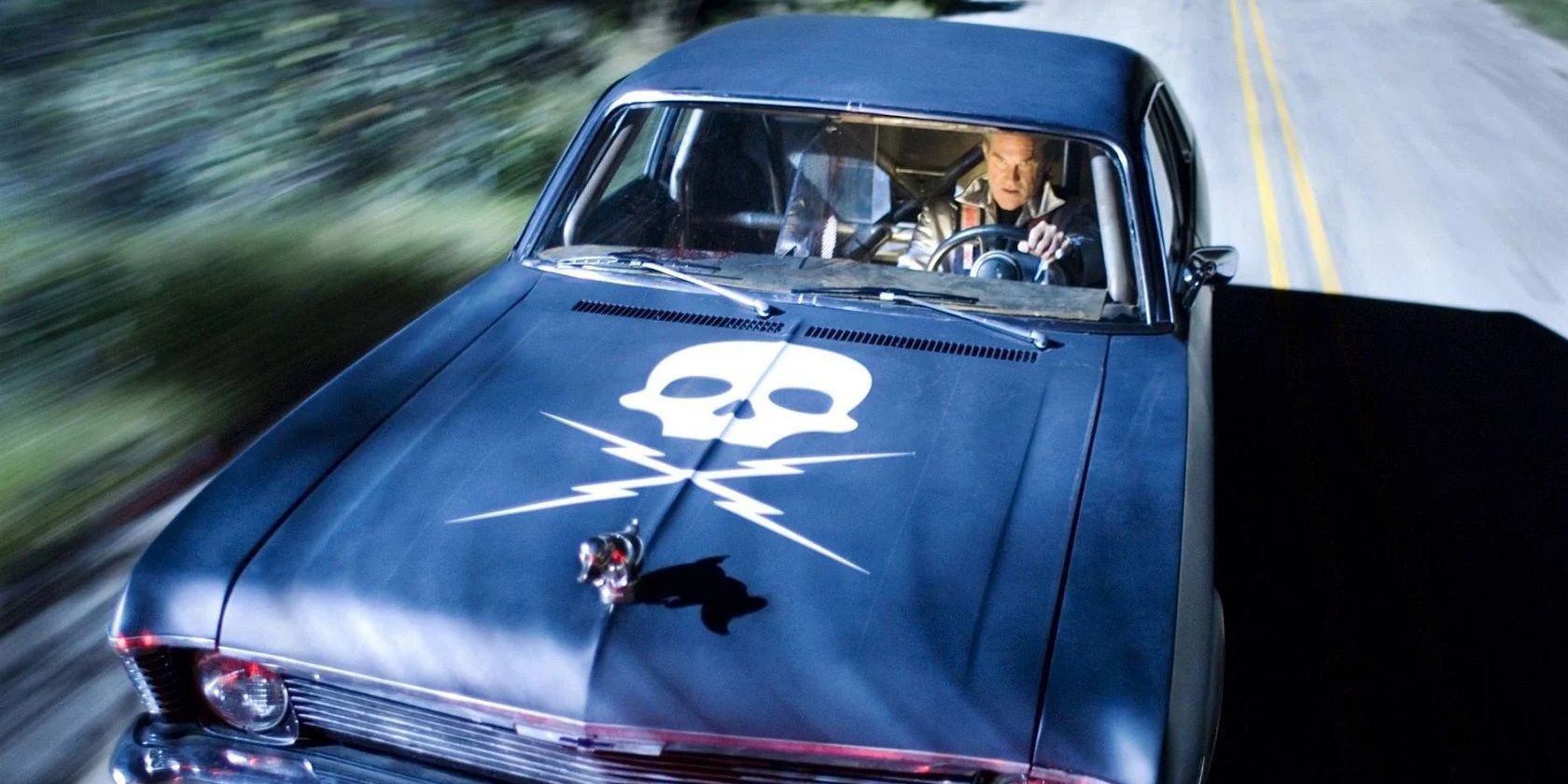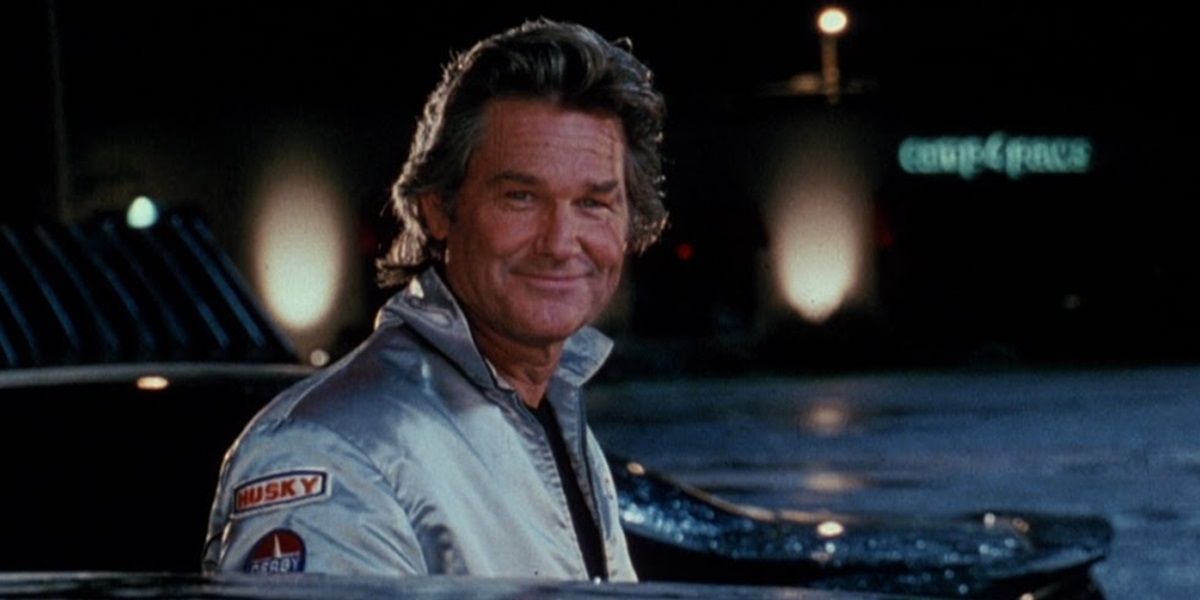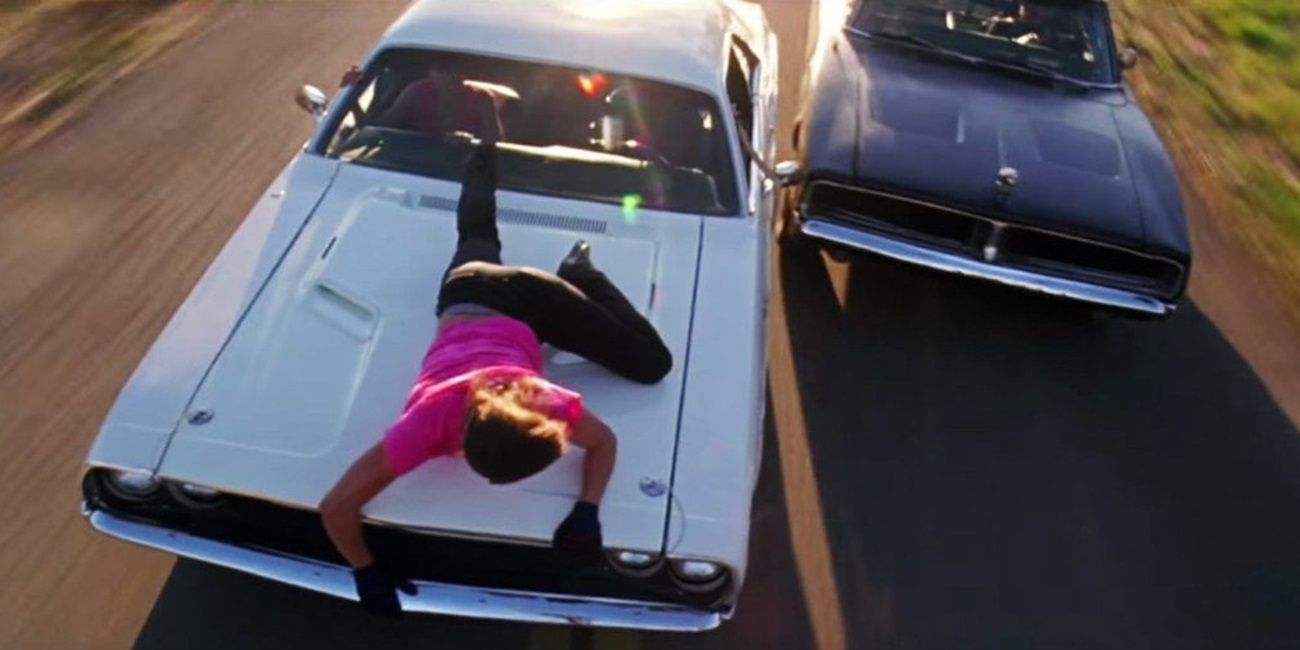Quentin Tarantino once told The Hollywood Reporter that Death Proof is the worst movie of his career. The writer-director explained, “I want to go out with a terrific filmography. Death Proof has got to be the worst movie I ever make. And for a left-handed movie, that wasn’t so bad, all right? So, if that’s the worst I ever get, I’m good.” Since Death Proof is often given the bottom spot on rankings of Tarantino’s movies, the director’s own admission that it’s his lowest creative point hardly came as a surprise.
But just because Death Proof is Tarantino’s worst movie, that doesn’t mean it’s a bad movie. It’s not as groundbreaking as Pulp Fiction or Django Unchained, or as nuanced as the director’s less genre-driven works like Jackie Brown and Once Upon a Time in Hollywood, but it’s definitely not a bad movie.
RELATED: The Hateful Eight Originated As A Sequel To Another Quentin Tarantino Movie
Death Proof was Tarantino’s half of the double-feature Grindhouse. He collaborated with his close friend and fellow director Robert Rodriguez, who contributed the zombie thriller Planet Terror (and also helmed that awesome Boba Fett-centric episode in The Mandalorian’s second season). Having grown up on B-movie double features in the golden age of exploitation cinema, Tarantino and Rodriguez each directed their own take on that era and then released those movies together, complete with fake trailers in between. Grindhouse ended up becoming the first box office bomb of Tarantino’s career – sadly, the average moviegoer didn’t share his nostalgia for exploitation double features – but it was a fun experiment.

Blending genres is Tarantino’s signature move, and the premise of Death Proof is one of his most interesting genre cocktails. Kurt Russell stars as a stuntman who uses his “death-proof” stunt car to prey on unsuspecting young women and satisfy his bloodlust. It’s the perfect intersection between car-based action movies like The Driver and Vanishing Point and gritty, blood-soaked slashers like Black Christmas and The Texas Chain Saw Massacre. With a killer who uses a car to commit his murders, Death Proof offers a wholly unique spin on the slasher genre (and unique spins on that genre are few and far between).
Tarantino’s script for Death Proof, as with all his other scripts, has an unconventional structure. It’s split into two halves with two sets of protagonists: in the first half, Stuntman Mike goes after one group of young women and brutally kills them all in one fell swoop; in the second half, he goes after a different group of young women and is shocked to discover that they’re ready for him.

A lot of people who didn’t catch Death Proof in theaters and instead ended up checking it out on a streaming service have turned it off about half an hour in because it doesn’t seem to be going anywhere. Granted, the movie gets off to a slow start and has some very long, very inconsequential dialogue scenes. For the first 45 minutes or so, Death Proof is basically a hangout movie in the mold of Richard Linklater’s Dazed and Confused, with a group of young Texans getting drunk at a bar. But those scenes build to an immense payoff. Once viewers get to the first kill, they’re hooked.
Stuntman Mike is one of Tarantino’s greatest villains. Every slasher villain needs a unique weapon to commit their murders with – Candyman’s hook, Leatherface’s chainsaw, Freddy’s knife glove, etc. – and a Chevy Nova is a pretty unique weapon. The icing on the cake is the casting of Kurt Russell. Russell got his start as a Disney star before being turned into a cool-as-ice badass action hero by John Carpenter before eventually returning to family-friendly Disney fare. With Death Proof, The Hateful Eight, and Once Upon a Time in Hollywood, Tarantino has brought back the badass Kurt Russell from the ‘80s. The subversive twist in Death Proof is that Russell, one of the most charming and likable actors on the A-list, plays a sadistic murderer. Like Michael Madsen’s turn as Mr. Blonde in Reservoir Dogs, Russell brings a disturbing charisma to the role of a vehicular killer.

With its genre thrills, excessive violence, and grainy film-stock visuals, Death Proof is a spot-on homage to exploitation movies. But in many ways, the homage is too spot-on for its own good. Tarantino includes glaring editing snafus as stylistic flourishes. The opening bar scenes perfectly emulate the on-the-nose flirtatious dialogue of raunchy Russ Meyer movies like Faster, Pussycat! Kill! Kill!, but those movies are crass and schlocky. By mimicking them, so is Death Proof.
What saves Death Proof is its action. The dialogue isn’t as thought-provoking or plot-relevant as the poetic conversations of Reservoir Dogs and Pulp Fiction, but the action scenes are masterfully crafted. After helming one of the greatest fight scenes of all time for Kill Bill: Volume 1, Tarantino staged one of the greatest car chases of all time for Death Proof. Having become disillusioned with all the CGI in modern car movies like Fast & Furious, Tarantino threw his hat in the ring with some of the most breathtaking practical car stunts ever put on film.

Since stunt performer Zoë Bell – who worked as Uma Thurman’s stunt double in Kill Bill – plays herself in Death Proof, she was able to show her face during all the action sequences, especially in the climactic chase when she’s clinging to the hood of a speeding car. Tarantino, acting as his own cinematographer, captured Death Proof’s authentic car chases in beautiful long takes, with the camera racing down the road at the same breakneck speed as the vehicles on-screen. He and long-time editor Sally Menke weren’t beholden to cutting between the star and their stunt double, because the star of their movie is her own stunt double.
It may be true that Death Proof is Tarantino’s worst movie, but it’s far from bad. It’s a testament to the greatness of the rest of Tarantino’s filmography that Death Proof is his worst movie. Reservoir Dogs revitalized independent cinema; Pulp Fiction defined the postmodern movement; Inglourious Basterds killed off Hitler. Tarantino’s other movies are all much stronger than Death Proof, but it’s a solid slasher with high-octane car chases that builds to a hugely satisfying finale.
NEXT: Quentin Tarantino Already Made The Perfect Final Movie

